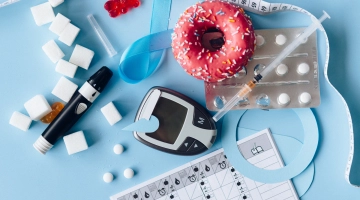Oncological diseases are increasingly diagnosed at a younger age. Research shows that many types of cancer develop silently for years, often without noticeable symptoms until later stages. This makes early prevention a critical tool in protecting your long-term health. Below are three essential steps every person should take before the age of 35 — even if they feel completely healthy.
-
Undergo Basic Cancer Screening
Early detection of malignant tumors significantly increases the chances of full recovery. Before 35, the following screening tests are particularly important:
-
Complete blood count (CBC) and biochemical blood analysis with differential — can indirectly indicate inflammation or tumor activity.
-
Abdominal and pelvic ultrasound — helps detect cysts, nodules, tumors, or structural abnormalities in internal organs.
-
For women: Breast ultrasound and gynecological exam with a Pap smear (cervical cytology) every 1–3 years, especially after becoming sexually active.
-
For men: Scrotal and prostate ultrasound if symptoms or a family history of cancer are present.
If there is a history of cancer in close relatives, it is advisable to consult a genetic counselor and undergo expanded screening.
-
Learn Self-Monitoring and Attend Annual Checkups
Being aware of changes in your body is key to early diagnosis. Watch for the following warning signs:
-
Changes in moles (size, shape, color, itching, bleeding);
-
New lumps in the breasts, testicles, or lymph nodes;
-
Persistent pain that does not improve with treatment;
-
Menstrual irregularities or unusual discharge;
-
Unexplained weight loss, chronic fatigue, or a lingering cough.
Even in the absence of symptoms, it is important to have annual checkups with a general practitioner, gynecologist or urologist, dermatologist, and dentist. These visits help detect early-stage disease before symptoms appear.
-
Manage Modifiable Risk Factors
Your lifestyle plays a direct role in your long-term cancer risk. By 35, it is essential to develop healthy habits:
-
Quit smoking (including e-cigarettes and heated tobacco) and limit alcohol consumption.
-
Eat a balanced diet rich in vegetables, fiber, and lean protein, and low in processed foods and red meat.
-
Engage in regular physical activity — at least 150 minutes of moderate exercise per week.
-
Maintain a healthy body weight and manage stress levels.
-
Protect your skin from ultraviolet radiation, especially in sunny climates.
-
Get vaccinated against human papillomavirus (HPV) and hepatitis B — both viruses are linked to cancer.
Conclusion
Cancer prevention is not a one-time action, but a lifelong strategy. Habits formed before the age of 35 lay the foundation for your future well-being. By taking these three steps — basic screening, self-monitoring, and risk factor management — you not only reduce your cancer risk but also invest in a longer, healthier, and higher-quality life.





